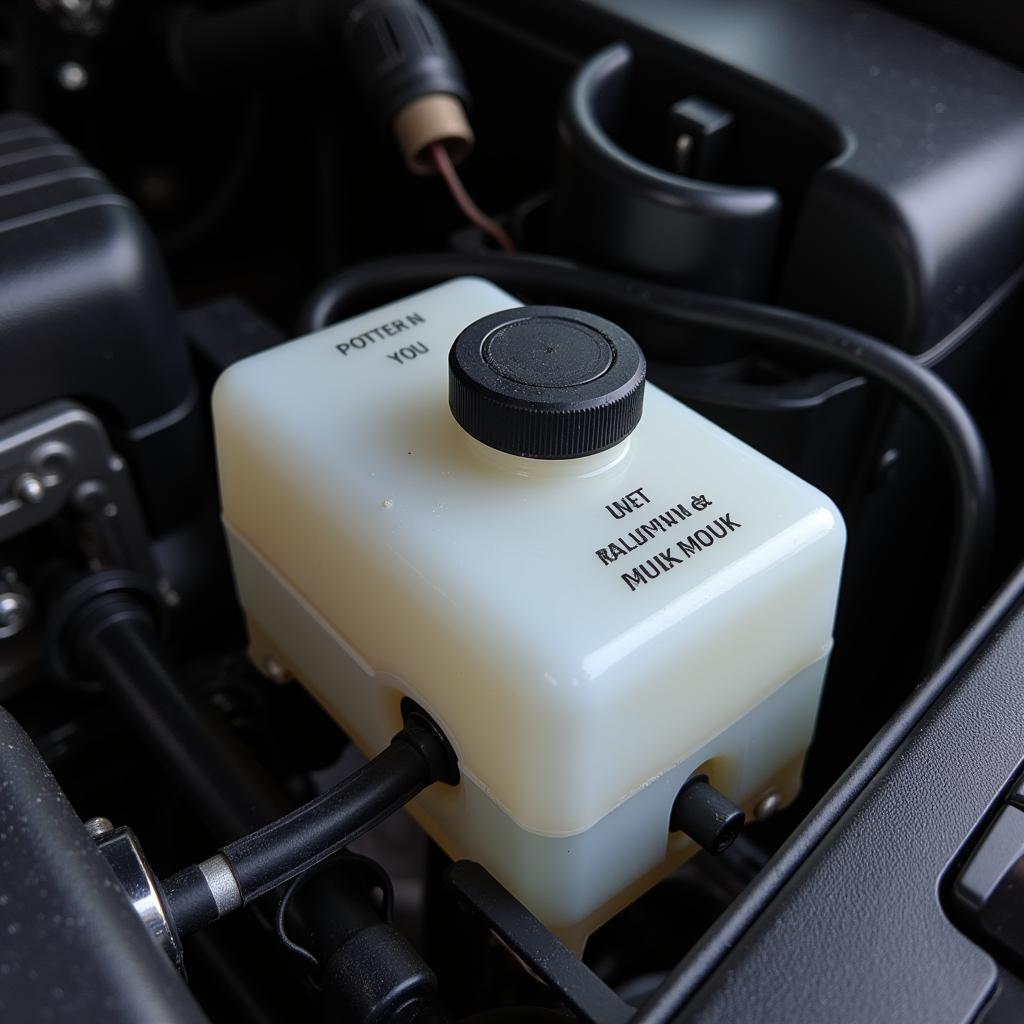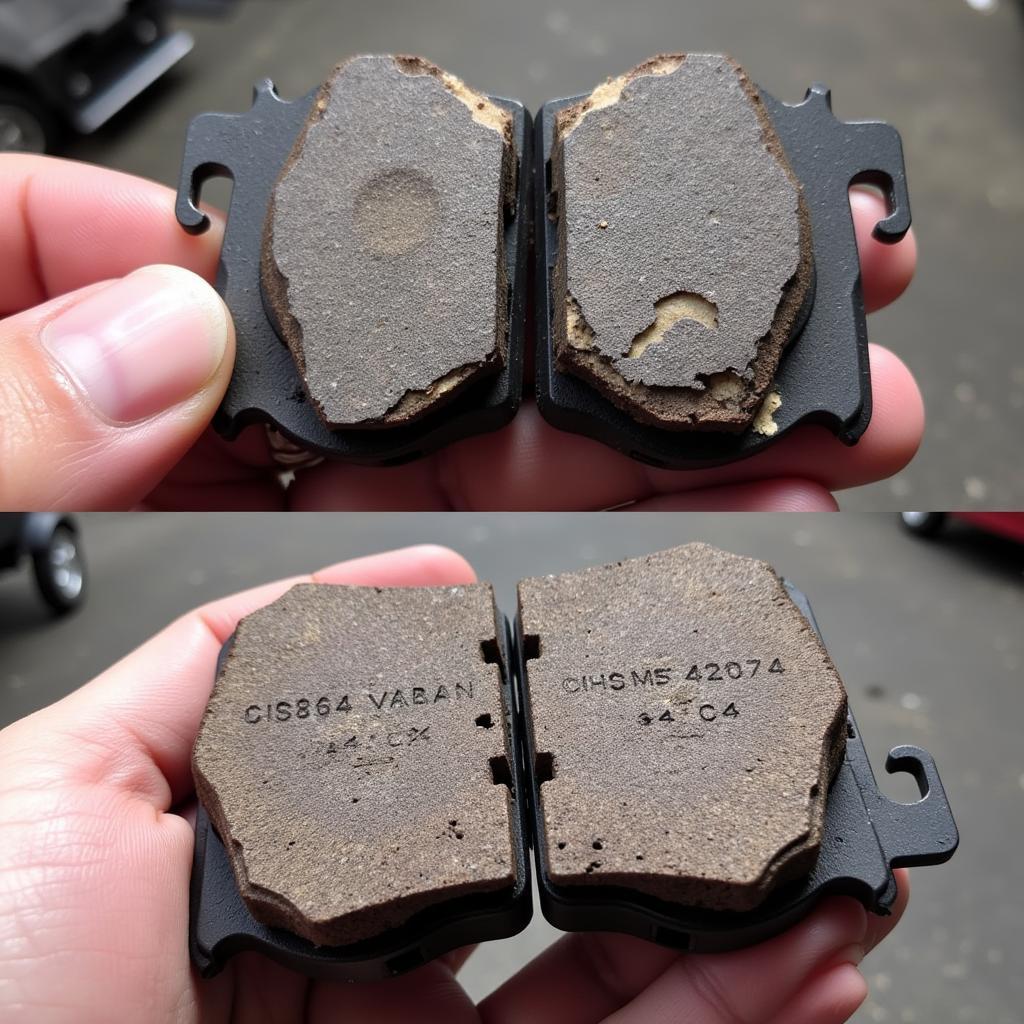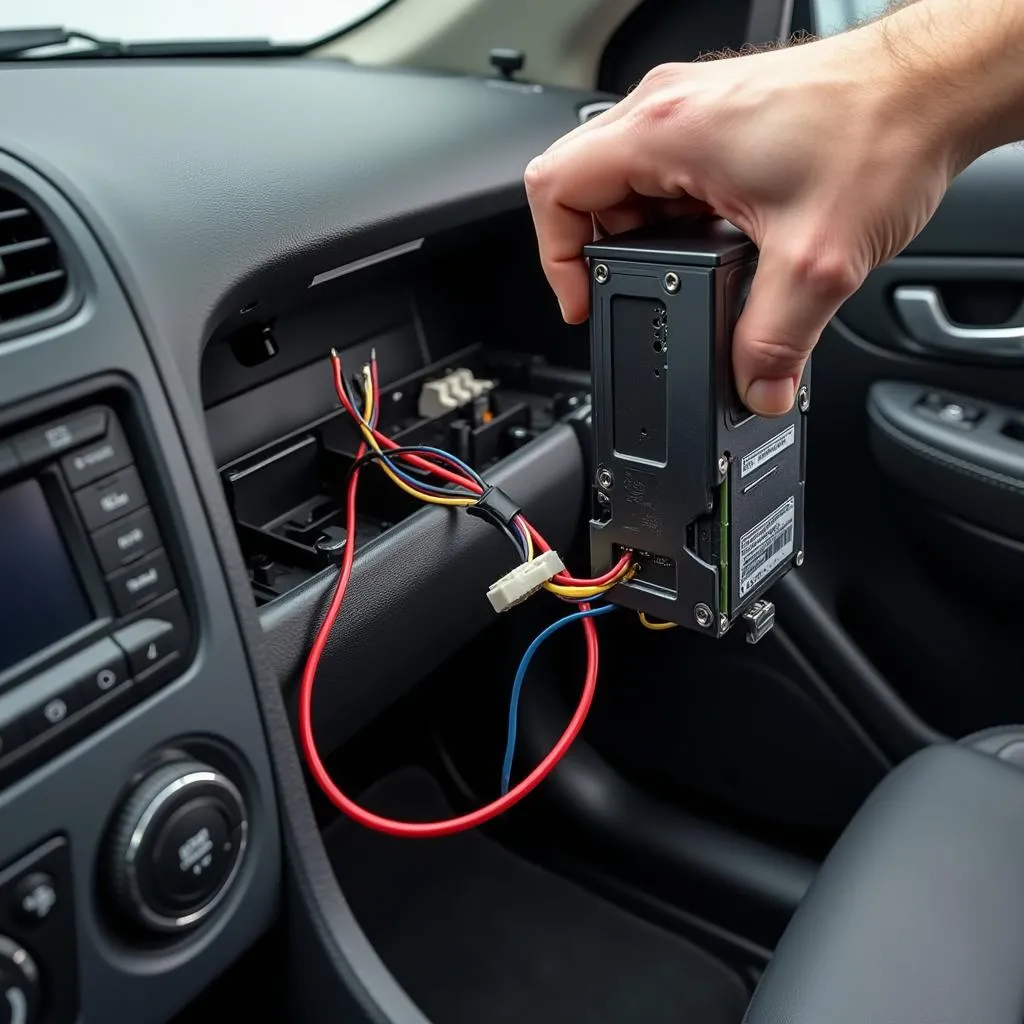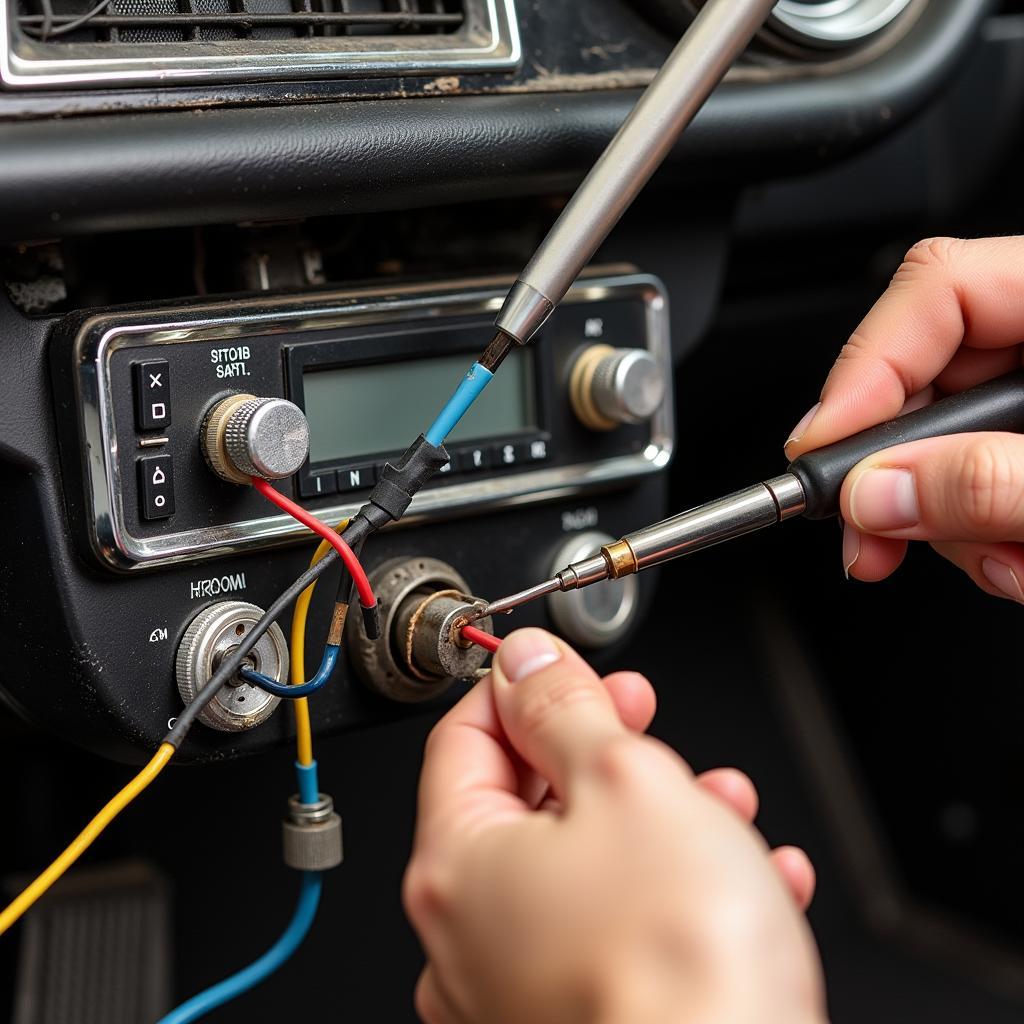A glowing brake warning light on your Nissan Rogue dashboard can be an unwelcome sight, signaling anything from a minor issue to a serious problem with your braking system. Ignoring this light can compromise your safety and lead to costly repairs. This comprehensive guide will walk you through the common causes of a Nissan Rogue brake warning light and provide potential solutions to get you back on the road safely.
Understanding Your Nissan Rogue Brake Warning Light
Your Nissan Rogue uses sensors to monitor the various components of your braking system. When the brake warning light illuminates, it indicates that one or more of these sensors have detected an issue.
The brake warning light can illuminate in different ways, each signifying a specific problem:
- Solid Light: A consistently illuminated light usually points to a problem with the hydraulic brake system, low brake fluid, or an engaged parking brake.
- Flashing Light: A flashing brake warning light often indicates a more serious issue, typically a malfunction within the Anti-lock Braking System (ABS).
Common Causes of a Nissan Rogue Brake Warning Light
1. Low Brake Fluid
One of the most common reasons for the brake warning light to turn on is low brake fluid. Brake fluid is essential for transferring force from the brake pedal to the wheels, allowing your vehicle to stop.
 Low Brake Fluid Reservoir Nissan Rogue
Low Brake Fluid Reservoir Nissan Rogue
Solution:
- Check the brake fluid level. Locate the brake fluid reservoir under the hood (refer to your owner’s manual for the exact location). If the fluid level is below the minimum mark, add the correct type of brake fluid (DOT 3 or DOT 4, as specified in your owner’s manual) until it reaches the maximum line.
- Inspect for leaks. If the fluid level is low, carefully examine the brake lines, hoses, and calipers for any signs of leaks. Leaking brake fluid will appear as a clear or yellowish liquid. If you find a leak, it’s crucial to have it addressed by a qualified mechanic immediately.
2. Worn Brake Pads
Brake pads are designed to wear down over time. When they become too thin, a sensor within the brake pad will trigger the warning light.
 Worn Brake Pads Nissan Rogue
Worn Brake Pads Nissan Rogue
Solution:
- Inspect your brake pads. If you are comfortable with basic car maintenance, you can check the thickness of your brake pads yourself. Otherwise, take your car to a mechanic or tire shop for inspection.
- Replace worn brake pads. If the brake pads are worn down beyond the recommended thickness, they need to be replaced. It’s generally recommended to replace the brake rotors at the same time as the pads to ensure optimal braking performance.
3. Faulty Brake Light Switch
The brake light switch is responsible for activating your brake lights when you press the brake pedal. A malfunctioning switch can cause the brake warning light to illuminate.
Solution:
- Test the brake light switch. Have a friend observe the brake lights while you press the brake pedal. If the lights don’t illuminate, the brake light switch is likely faulty and needs replacement.
4. ABS Sensor Issues
The ABS system prevents your wheels from locking up during hard braking. If an ABS sensor is dirty, damaged, or malfunctioning, it can trigger the brake warning light.
Solution:
- Diagnose the ABS system. Use an OBD-II scanner to read the trouble codes stored in your vehicle’s computer. These codes can pinpoint the specific issue within the ABS system.
2015 nissan rogue brake warning lights
5. Faulty Parking Brake Switch
If your parking brake is not fully released or the parking brake switch is faulty, it can also trigger the brake warning light.
Solution:
- Check the parking brake. Ensure the parking brake is fully disengaged. If the light remains on, the parking brake switch might be the culprit.
standard light warning nissan rogue 2015 forward emergency brake light
When to Seek Professional Help
While some causes of a Nissan Rogue brake warning light can be addressed with basic troubleshooting, it’s crucial to remember that brakes are a critical safety system. If you’re unsure about any aspect of brake repair or if the issue persists after trying the solutions above, it’s essential to seek professional help immediately.
“Ignoring your brake warning light can lead to much more serious and expensive problems down the road,” advises John Smith, a certified automotive technician with over 20 years of experience. “It’s always better to err on the side of caution when it comes to your brakes.”
Preventing Future Brake Issues
Regular maintenance is key to preventing future brake problems. Follow these tips to keep your Nissan Rogue’s brakes in optimal condition:
- Regular Brake Inspections: Have your brakes inspected at least once a year or every 12,000 miles, whichever comes first.
- Timely Brake Fluid Flush: Replace your brake fluid every 2 years or as recommended by your owner’s manual.
mini brake pad warning light reset 2016
- Avoid Riding the Brakes: Avoid constantly resting your foot on the brake pedal, as this can lead to premature wear and tear.
- Address Warning Lights Promptly: Don’t ignore any warning lights on your dashboard, especially those related to your brakes.
2016 nissan rogue brake warning
Conclusion
The brake warning light in your Nissan Rogue should never be ignored. By understanding the potential causes and solutions outlined in this guide, you can address the issue promptly and ensure your safety on the road. Remember, if you’re ever unsure about diagnosing or repairing your brakes, always seek help from a qualified mechanic.


